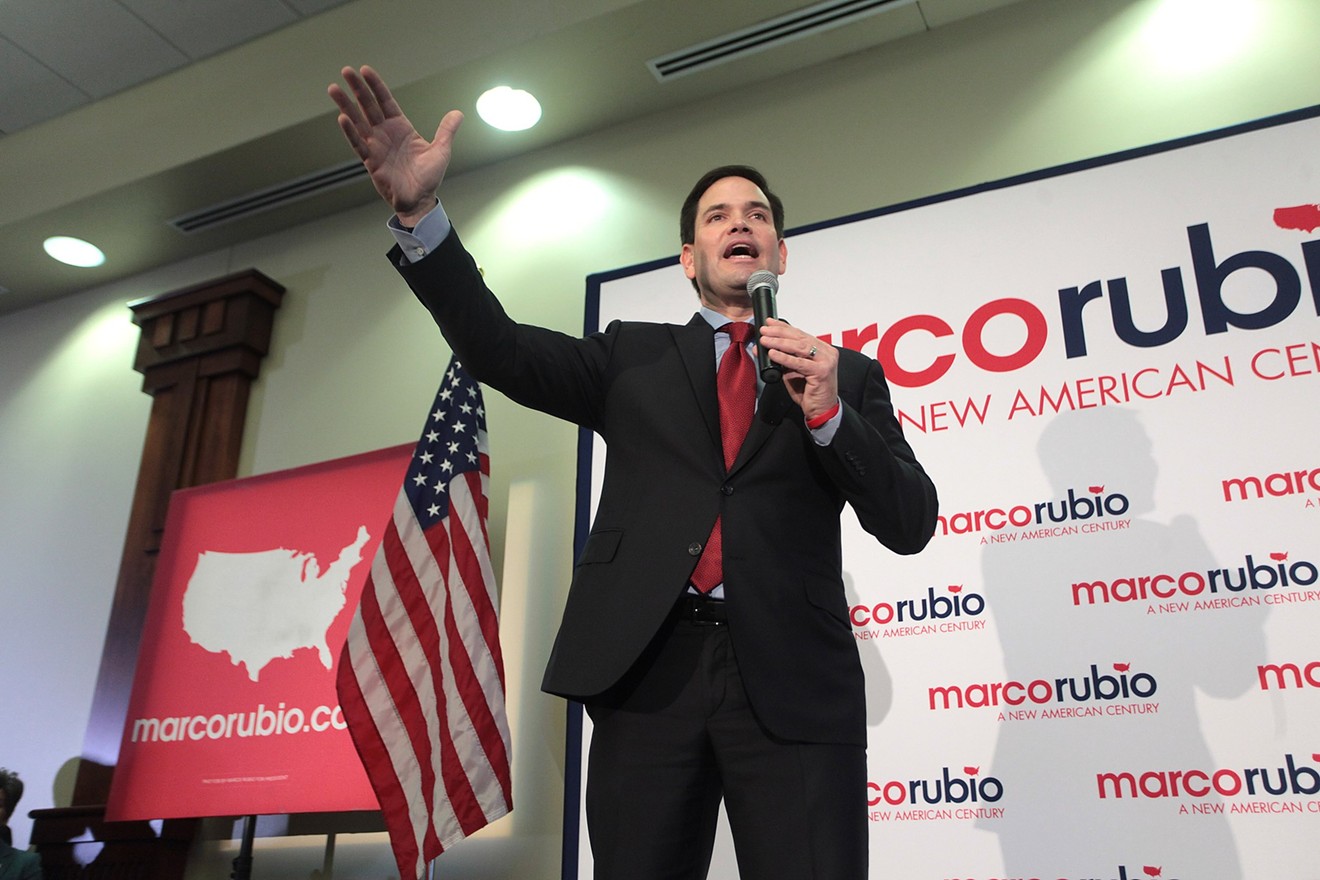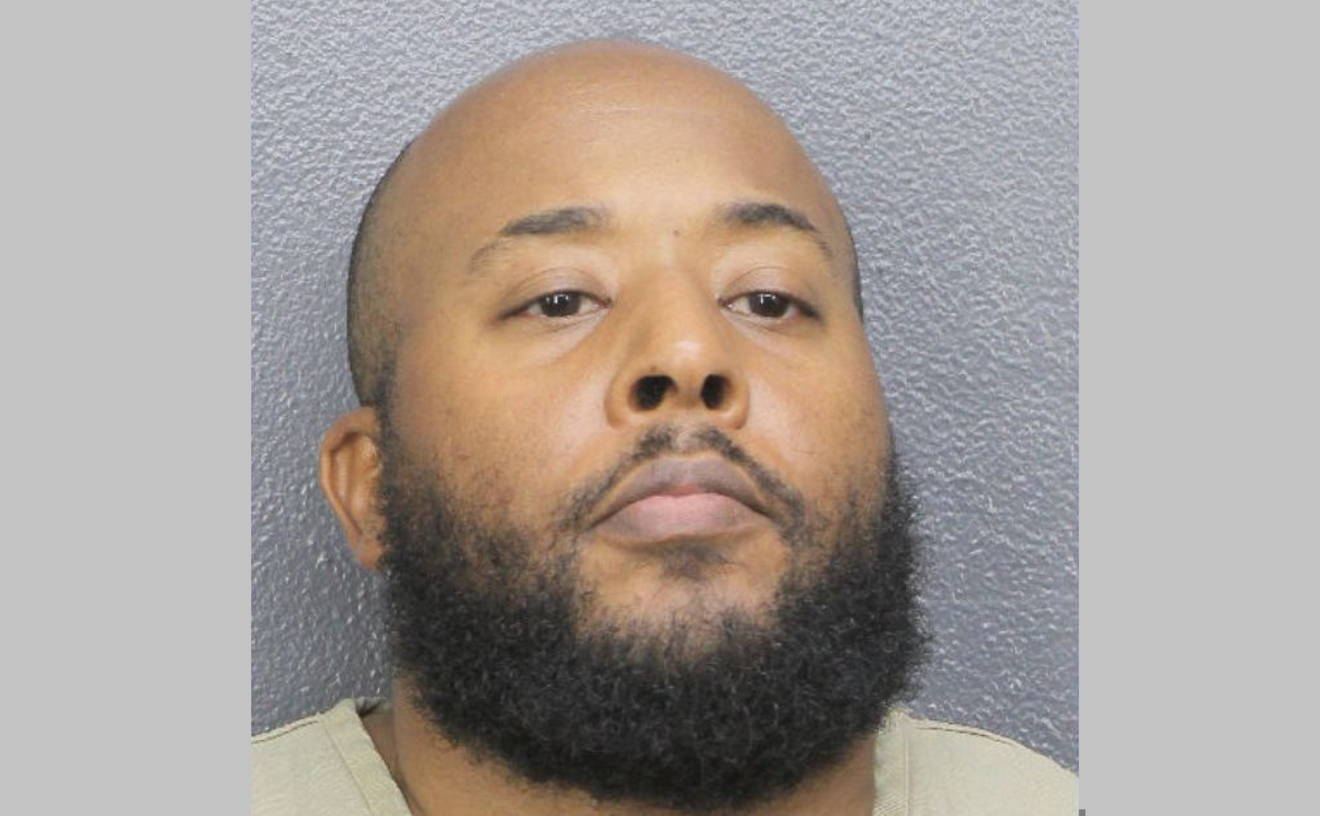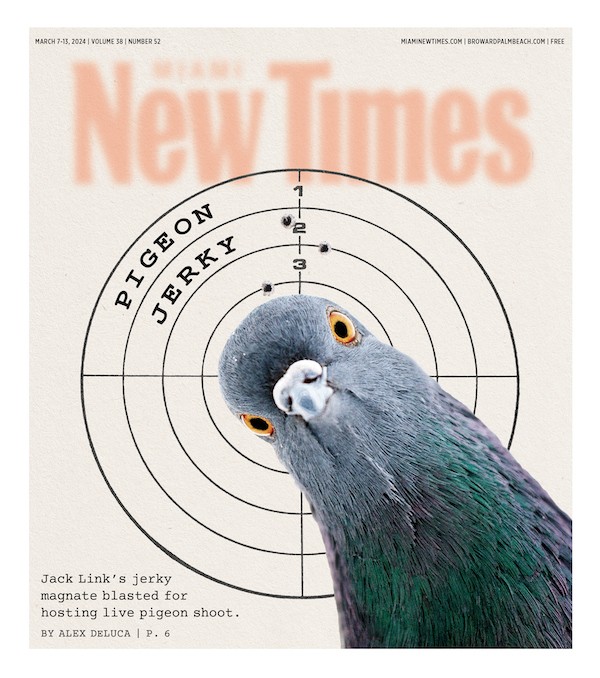Two days before the midterm election, former President Donald Trump visited the Miami-Dade fairgrounds to deliver a 90-minute magnum opus centered on how the Democratic Party is overrun by communists.
"You have to crush the communists at the ballot box. If you want to save your rights and liberties, you have to start by dealing a humiliating rebuke to the radical left maniacs running in this election," Trump said, garnering loud cheers. "The socialist, communist, and Marxist direction in the radical Democrat Party is one of the big reasons that Hispanic Americans are joining our movement by the millions and millions."
Trump's rhetoric was a less subtle version of a familiar Republican strategy proven undeniably effective in courting Cuban American voters year after year: depict Democrats as communists and Castro regime sympathizers while taking a strong stance against U.S.-Cuba reconciliation.
Stoking angst about communist infiltration is especially effective in South Florida, where hundreds of thousands of Cuban exiles and their family members reside — many of whom have ripe memories of oppression and destitution living under the Castro regime.
Republican Sen. Marco Rubio keyed in on that anxiety when he briefly took the stage as an interlude to Trump's Miami speech.
"This is a community who lost their country. They saw the destruction... of the nation of their birth. They saw what socialism and communism and Marxism can do, and they are not going to lose this country," Rubio said.
Rubio ultimately trounced challenger Val Demings in the senate race, winning by a more-than 16 percent margin. Campaign ads against Demings consistently portrayed her as a radical leftist, though Rubio refrained from using the "c-word" (communist, that is).
Florida International University professor Guillermo Grenier tells New Times that Republican rhetoric is so finely tuned to court the Cuban American electorate that Democrats need a total overhaul of their messaging in order to break through. Grenier is a Cuban migration expert and one of the lead researchers behind the FIU Cuba Poll, which election after election, shows Cuban American voters' unwavering support for Republicans.
"Democrats try to out-Republican the Republicans," Grenier says. "They need to talk about healthcare, the economy, and Cuban family reunification, which almost everybody agrees is a great thing."
In May, President Joe Biden announced he was lifting a Trump-era suspension of the Cuban Family Reunification Parole Program, which allows U.S. citizens and residents to apply for a waiver of visa requirements for Cuban family members who want to come to the U.S. Biden also revealed a plan to lift the cap on family remittances to Cuba, open up economic channels to Cuban businesses, and increase visa processing for Cubans trying to visit family members in the United States.
Trump has characterized Biden's easing of U.S.-Cuba policy as a "betrayal" in the wake of historic political protests in the island nation last year. He told his Miami audience in the midterm speech that the Biden administration "has abandoned the people of Cuba: completely, completely, completely."
But in the 2022 FIU Cuba Poll, more than 90 percent of the surveyed Cuban Americans supported the family reunification program. A majority of the polled voters supported Biden's removal of the remittance cap as well, according to the research.
Grenier says that in the midterm election season, Democrats exhibited an abject inability to capitalize on popular support for their policy stances.
"Democrats wait for the last minute, and say, 'What are we going to do about the Latino voters?'" Grenier says. "If they want to win, Democrats, between elections, would need to develop a long-term plan to address Cuban voters as citizens and not maintain [them] in the liminal zone as exiles."
The last time Democrats made a significant dent in Florida Cubans' support for the Republican Party was during the era of Barack Obama's presidency. Obama carried traditionally Republican communities with large Cuban populations such as Hialeah, and he won Miami-Dade County by a wide margin.
Mike Rivero, cofounder of the progressive group Cubanos Pa'lante, says that unless Democrats can rekindle the grassroots campaigning success of the Obama days, Republicans will continue to cement the Democrats-as-communists narrative in place while making headway in South Florida, home to more than 1.2 million Cuban American residents.
"You can look at this election cycle as a good example of how, when proper resources are not invested in the right way, that messaging can take hold," Rivero says. "If you want to win South Florida, you have to get down and dirty and go into the so-called 'tough' neighborhoods and find common ground."
Rivero says that fear-mongering over supposed communist infiltration in the Democratic Party has been used to emotionally manipulate Miami's Cuban American population for decades. But the narrative has reached a fever pitch under Trump's wing, facilitated by Spanish-language radio shows and misinformation-laden social media threads, Rivero claims.
Grassroots programs that enlist as many local campaign volunteers as possible can cut through the echo chamber, Rivero says. He says one-on-one interaction is the best way to communicate to conservative voters that social welfare programs like Medicare and public housing measures don't amount to a communist takeover.
"It's all about presence. It's very hard to label someone a communist when you can go on the street, see volunteers from your community in the campaign, have conversations, and see the candidate campaigning face to face," Rivero says. "Charlie Crist's message was never going to get through these social media channels or Spanish radio."
Crist lost the governor's race to Ron DeSantis by a landslide, nearly a 20 percent margin. He faced a massive campaign funding gap, raising $28.4 million against DeSantis' record $183 million, according to Open Secrets.
It was the first time since 2002 that a Republican gubernatorial candidate carried Miami-Dade County. (By comparison, in 2014, when Crist previously ran for governor, he secured 58 percent of the vote versus Rick Scott's 39 percent in Miami-Dade, though Crist wound up losing the race.)
Grenier notes that the proportion of Cuban American voters in Florida who register as independent has grown considerably in recent years, but that those independent voters lean heavily Republican.
Democrats "are not going to turn the tide overnight," he says.
Even if Democrats can connect with voters on specific issues like healthcare, they face an uphill challenge in unwinding entrenched devotion to the GOP.
"The 'Republican-ness' just about trumps everything else," Grenier says. "The Republican Party says all the right things. It resonates here... The Democratic Party has not made any inroads."
While heavy support for Republicans was expected in the Cuban community, the exodus of other Hispanic voters from the Democratic Party in Florida has prompted scrutiny of the party's statewide strategy and calls for party chairman Manny Diaz to resign.
In the aftermath of the election, Kartik Krishnaiyer — a political commentator and sports writer who describes himself as a former Democratic operative — proclaimed, "From Florida Bay to the Perdido River, Florida is red thanks to years of arrogance, obstinance and good old fashioned grift."
Election
Will Democrats Ever Regain Ground With South Florida's Cuban Voters?
Under Trump's wing, Republicans have fine-tuned their ability to evoke fear of communist infiltration in the Democratic Party.

U.S. Senator Marco Rubio speaking with supporters at a rally at the Forte Banquet Center in Des Moines, Iowa.
Photo by Gage Skidmore
[
{
"name": "Editor Picks",
"component": "17482312",
"insertPoint": "4",
"requiredCountToDisplay": "1"
},{
"name": "Inline Links",
"component": "18711090",
"insertPoint": "8th",
"startingPoint": 8,
"requiredCountToDisplay": "7",
"maxInsertions": 25
},{
"name": "Air - MediumRectangle - Combo - Inline Content",
"component": "17482310",
"insertPoint": "8th",
"startingPoint": 8,
"requiredCountToDisplay": "7",
"maxInsertions": 25
},{
"name": "Inline Links",
"component": "18711090",
"insertPoint": "8th",
"startingPoint": 12,
"requiredCountToDisplay": "11",
"maxInsertions": 25
},{
"name": "Air - Leaderboard Tower - Combo - Inline Content",
"component": "17482313",
"insertPoint": "8th",
"startingPoint": 12,
"requiredCountToDisplay": "11",
"maxInsertions": 25
}
]








